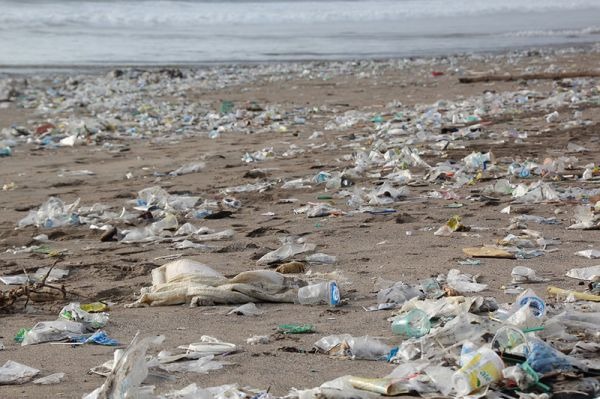The European Commission announced yesterday new EU-wide rules to reduce the 10 single-use plastic products most often found on Europe's beaches and seas. The rules also targets lost and abandoned fishing gear. The plastic items covered by the proposal account for 43 % of total marine litter. To this is added 27 % in form of fishing gear. Together these constitute 70% of all marine litter.
The selection of plastic items to be reduced is based on a representative sample covering 276 beaches in 17 EU member states and four regional seas during 2016. Among them are cotton buds (used in different applications), cutlery, plates, food containers, and cups for beverages.
A spokesperson for the European Commission told The Brussels Times that almost 100 items of single-use plastics is not covered by the proposal, such as diapers and medical items. Other usual plastic items are not considered as single-use plastics.
Different measures will be applied to different products. Where alternatives are readily available and affordable, single-use plastic products will be banned from the market. For products without straight-forward alternatives, the focus is on limiting their use through a national reduction in consumption.
Member States will be obliged to collect 90% of single-use plastic drinks bottles by 2025, for example through deposit refund schemes.
First Vice-President Frans Timmermans, responsible for sustainable development, said at a press briefing (28 May) that, “Plastic waste is undeniably a big issue and Europeans need to act together to tackle this problem, because plastic waste ends up in our air, our soil, our oceans, and in our food”.
In 2014, Timmermans, also responsible for better regulation, opposed the European Parliament on the rules in a directive on plastic bags, called it “overregulation” and thought that there later would be problems with the implementation.
He proved to be wrong. According to an opinion poll, 72 % of Europeans have cut down on their use of plastic bags. At the press briefing, Timmermans admitted that he had “completely” underestimated the issue. “Behavioural change among consumers is a strong driving force.”
The Commission writes now that tackling the plastics problem is a must and can bring new opportunities for innovation, competitiveness and job creation. Having one set of rules for the whole EU market will create a springboard for European companies to develop economies of scale and be more competitive in the booming global marketplace for sustainable products.
Currently the costs of littering of single-use plastic items are met by the public sector and the clean-up responsibility is unclear. The Commission writes that producers will help cover the costs of waste management and clean-up, as well as awareness raising measures. Estimates by the Commission show that the net benefits of the proposal are obvious.
The Brussels Times

